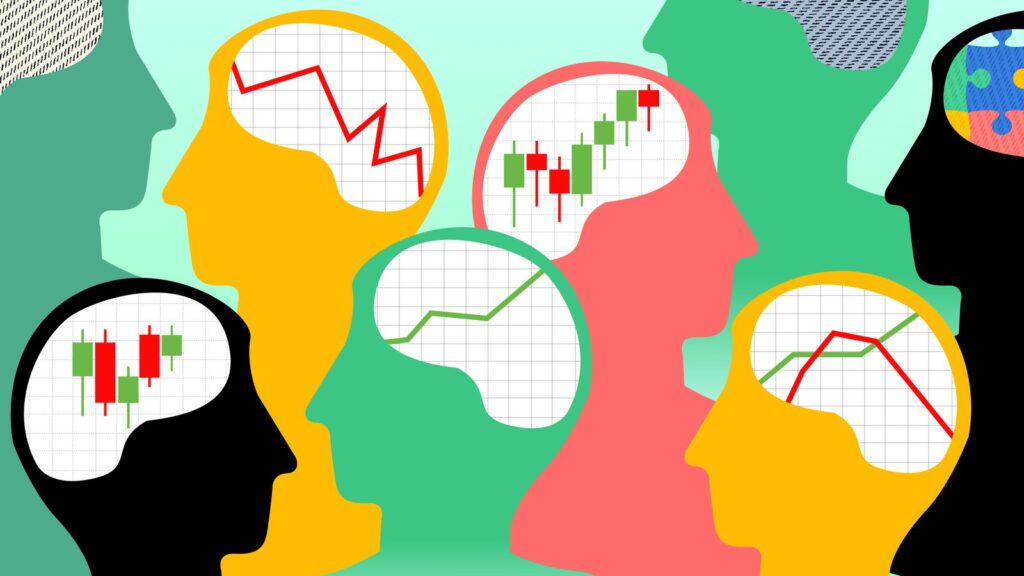Psychology of Trading: The Essential Key to Long-Term Success

Ever placed a trade you knew you shouldn’t—just because you felt it was going to work out? You’re not alone. Most new traders don’t lose because of bad strategies—they lose because of bad impulses. The truth is, mastering the psychology of trading is just as important as learning technical analysis or market trends.
In this post, I’ll help you recognize how your emotions impact your trading decisions—and more importantly, how to control them. If you’ve ever felt stuck in a cycle of overtrading, revenge trading, or panic exits, this guide will give you the tools to break free.
Why the Psychology of Trading Matters More Than You Think
Here’s something I wish I’d understood earlier: The market doesn’t care how you feel. But your success depends entirely on how you react to those feelings.
The psychology of trading refers to the mental and emotional aspects that influence your trading behavior. And if you think that only strategy matters, think again. According to numerous trading psychology studies, emotional control is often the dividing line between consistent profitability and chronic losses.
In fact, even with a solid system, traders who ignore mindset can end up sabotaging themselves with:
- Fear of missing out (FOMO)
- Impulse buying or selling
- Holding losers too long
- Taking profits too early
- Revenge trading after a loss
Sound familiar?
Common Mental Pitfalls That Kill Profits
Let me tell you about my early days. I once turned a $1,000 profit into a $500 loss—all because I got greedy. The trade had hit my target, but I thought, “Just a little more.” Minutes later, news broke, and the market reversed hard.
That wasn’t bad strategy—it was bad psychology.
Here are some common psychological traps beginner traders fall into:
1. Overtrading
Feeling like you need to “always be in a trade” often leads to poor setups and forced entries. Trading boredom is real—but discipline pays more than action.
2. FOMO
Seeing a candle rocket upward makes your palms sweaty. You jump in… just as the trend peaks. Instead of chasing, learn to wait for your setup.
3. Revenge Trading
After a loss, you double your risk on the next trade to “win it back.” This is gambling, not trading—and it usually ends in more pain.
4. Fear of Losing
Ironically, fear of losing can lead to bigger losses. Exiting too early or hesitating can throw off your strategy entirely.
Action Steps to Master Your Mindset
Let’s get practical. You can control your emotions—you just need a few tools and habits. Here’s how to develop a trading mindset built for consistency:
1. Build a Routine
- Trade at set hours only.
- Review your charts at specific times.
- End your session the same way each day.
Routine reduces emotional noise.
2. Use a Trading Journal
Write down:
- Why you entered each trade
- How you felt at the time
- The outcome (profit/loss)
This keeps you accountable and reveals emotional patterns over time.
3. Practice Risk Management
Yes—risk management plays a big role in psychology. Knowing you’ve only risked 1–2% on a trade makes it easier to accept losses calmly and move on.
Check out our full post on “Risk Management: The Smart Way to Protect Your Capital and Trade with Confidence”.
4. Create a Mindset Checklist
Before you trade, ask:
- Am I following my plan?
- Am I calm and focused?
- Is this a quality setup—or just boredom?
5. Learn to Pause
Feel your heart racing? Walk away for 5 minutes. Deep breaths, a quick stretch, or stepping outside can reset your emotional state before you act.

The Long-Term Mindset: Trade Like a Pro
Professionals don’t win every trade. But they do stay emotionally consistent. The difference isn’t in the strategy—it’s in how they think.
Here’s what that mindset looks like:
- Detached from outcomes: A win doesn’t make you a genius. A loss doesn’t make you a failure.
- Process over profits: You measure success by following your system, not by short-term gains.
- Always learning: Setbacks are study material—not reasons to quit.
Key Takeaways
- The psychology of trading is often the make-or-break factor in a trader’s journey.
- Emotional traps like FOMO, revenge trading, and fear of loss are common but conquerable.
- Daily habits, journaling, and risk management all help regulate your trading mindset.
- You can’t control the market, but you can control how you respond to it—and that’s where your power lies.
If you’ve made it this far, you’re already ahead of the curve. Most traders never stop to work on mindset—but those who do often go further, faster.
The psychology of trading isn’t a one-time fix. It’s a lifelong practice. But trust me—it gets easier with awareness, discipline, and self-compassion.
Ready to take your skills further?
Don’t miss our next guide: Trading Signals: How to Read and Act on Them.
Let’s continue on the path to becoming a savvy, informed trader.